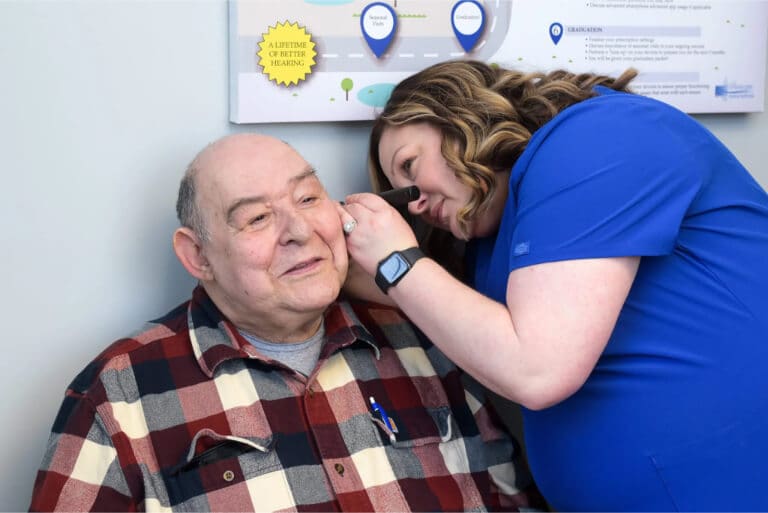Since the pandemic struck back in 2020, you may have noticed an increase in people coming to your clinic with tinnitus-related issues, such as ringing and buzzing in the ears.
We certainly have.
So, is it a side-effect of COVID-19?
Let’s look at the facts.
Firstly, research has shown that for those who have contracted COVID-19, about 15% reported tinnitus as a symptom.
In addition, there has been emerging data showing some findings of tinnitus as a side effect of the COVID-19 vaccine, however, more research is needed as this is currently based on patient reports.
Another reason for the rise in tinnitus complaints has been the increased levels of stress and anxiety that the pandemic has brought.
Though many people who have tinnitus (and who have been living with it for some time) can easily get on with their life without suffering from tinnitus symptoms too much, it’s true that an increase in their stress levels can have a dramatic impact, causing their tinnitus to worsen.
With many people suffering a loss of income, the pressures of home-schooling, working from home, isolation, and social anxiety, among many other changes we’ve had to endure during this time, it’s apparent that this has affected the bothersome tinnitus symptoms too, which increases stress levels further.
What Are We Doing With This Information?
When it became apparent that tinnitus could be linked to the effects of COVID-19, we wanted to act fast, which meant being on the ball with the data.
Now, for any patient reporting new or emerging tinnitus, we are currently asking during our initial visit if they have had COVID-19 and, if they have, did their tinnitus begin before or after their diagnosis.
In addition, we’re also asking if they have been vaccinated and whether their tinnitus begins before or after being vaccinated.
This helps us keep a record so we can identify patterns or anomalies, which can help us better help you!
Do You Have Patients Complaining About Tinnitus Symptoms?
If you have noticed an increase in patients complaining about sensations of ringing, buzzing, hissing, or whooshing in their ears, then we can help.
Our Tinnitus Consultations are a great place to start, followed by our Tinnitus Assessments, as both combined will give them ‘there and then’ clarity on whether they have tinnitus or not, and if so if it’s an indicator of a larger hearing loss problem (which is always best found early).
In addition to this, they can complete several different sleep, anxiety, and hearing inventories that help pinpoint which areas contribute to their tinnitus symptoms, such as stress, sleep deprivation, and isolation, after which a tinnitus plan is established.
We then work closely with them to systematically implement this plan to begin getting some relief as their tinnitus perception lessens.
How Much Does It Cost?
The initial tinnitus consultation costs $370 (prices vary for patients with Medicaid-based insurance plans) and consists of two appointments, an initial hour and a half consultation followed by 45-minute telehealth or in-person visit.
The diagnostic portion of this appointment is covered, but the cost of the office visit is not covered by insurance.
If you would like more information or to schedule an appointment for a tinnitus consultation, please call 508-674-3334.
Zoom and in-person consultations for you and your staff for more information are also available by emailing Dr. Duncan at nancy@duncanhearing.com.




